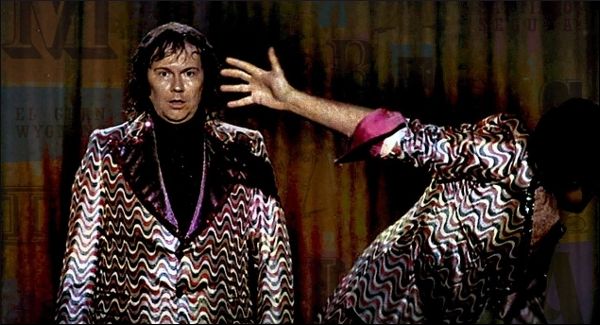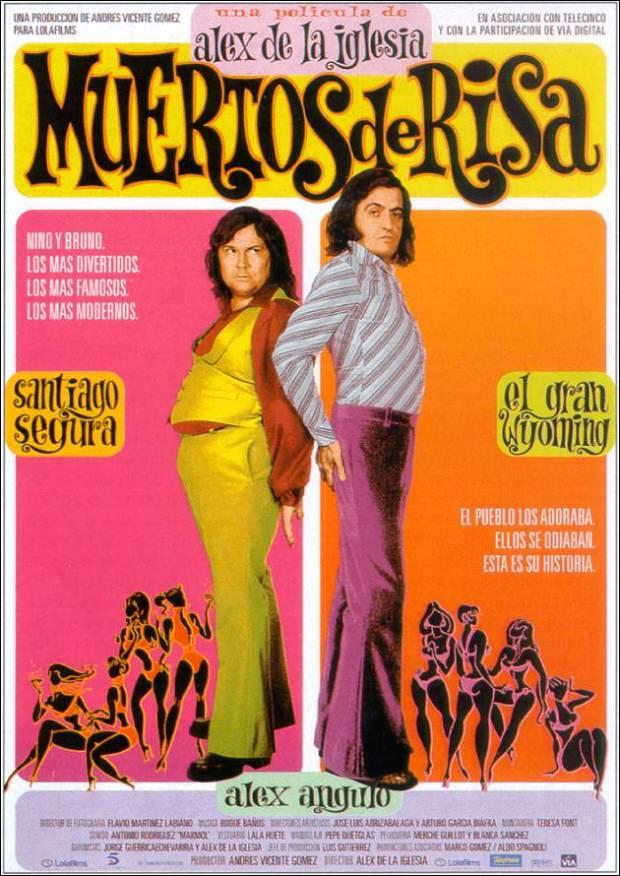Muertos de risa (translated as Dying of Laughter) is a 1999 dark comedy directed by Álex de la Iglesia, who is the modern authority on Spanish dark comedy (along with this movie, which is my favorite, I offer as companion pieces Day of the Beast and La Comunidad). Dying of Laughter takes place in the world of comedy TV and chronicles the life story of fictional comedy duo Nino and Bruno, who bring in the dollars and the love of their audience with their act while hating each other’s guts.
This movie is not for everyone, mainly because when I say it’s a dark comedy, I really mean it. Nino and Bruno start out as reluctant partners and turn into full-fledged paranoid psychopaths who will stop at nothing to harm each other. The gradual escalation of their mutual hatred along with their rising fame is the source of much of the film’s comedy. Despite the protagonists’ actions, though, each one is the closest thing to a friend the other has. Santiago Segura – who became famous in Spain playing the corrupt, fascist, disgusting ex-cop Torrente in a series of films – is brilliant as Nino, a born innocent who’s always the butt of Bruno’s jokes. It’s an assured performance that shows a great deal of range. De la Iglesia often directs events in a series of long takes populated with action and noise (like American director Martin Scorsese), paying special attention to the reconstruction of period details as his characters live through the 70s and 80s.
"Álex de la Iglesia is the modern authority on Spanish dark comedy."
As a result of its historical focus, the film references a lot of events in the history of Spain during the late 20th century. Nino and Bruno first meet while the former is impersonating Nino Bravo (a Spanish melodic singer whose fame peaked during the 60s) at a rundown bar, and the sequence ends with a bunch of Franco’s soldiers burning down the place. In fact, the presence of Franco’s dictatorship permeates the entire film. It’s used as a plot device when Nino is looking for a prank to play on Bruno and when a coup d’état takes place as Nino and Bruno obliviously beat each other up for the television cameras. Their act seems like the kind of “clean” comedy that could have been freely broadcast during those repressive times. Of course, when democracy returns, the party-loving comedians take full advantage of it.
The characters all talk in typical Spanish slang, often using curse words like “joder” and “coño”. For any native Spanish speaker, the film is infinitely quotable as the delivery is in itself a source of humor. That’s of course something that doesn’t always translate easily to the English-speaking audience. As Bruno says near the end, “acabo de darme cuenta de que he dedicado toda mi vida a putearte” (I just realized I’ve devoted my entire life to cursing at you).




